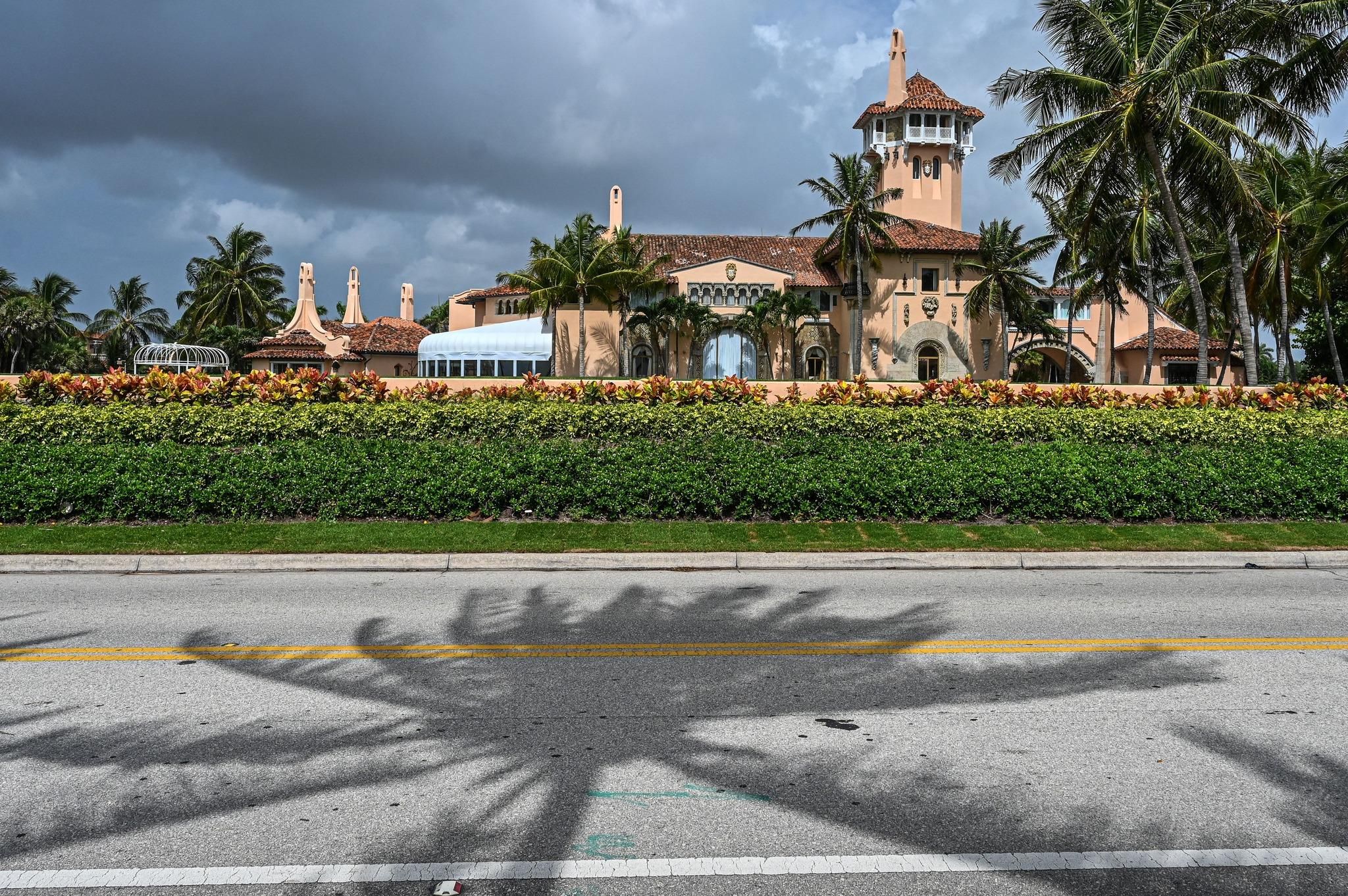On Monday, the FBI executed a search warrant at Mar-a-Lago, one of former President Donald Trump’s homes. The justification of the warrant has not been confirmed but is reportedly linked to a federal criminal investigation of Trump’s handling of classified documents related to national security, allegedly in violation of the Espionage Act (among other statutes).
Here are my five big takeaways based on what we know so far:
Want to understand the world a little better? Subscribe to GZERO Daily by Ian Bremmer for free and get new posts delivered to your inbox every week.
- This is unprecedented. While investigations targeting active or potential national candidates such as the one into Hillary Clinton in 2016 have happened before, an investigation targeting an ex-president who will likely run again is a first and crosses an important rubicon in American politics. Having said that, Trump was an unprecedented president in many ways, and his unprecedented behavior has had unprecedented consequences (think January 6, two impeachments, etc.). At the end of the day, Trump is a private citizen subject to the law of the land. As the National Review’s Kevin Williamson put it: “If we really believe, as we say we believe, that this is a republic, that nobody is above the law, that the presidency is just a temporary executive-branch office rather than a quasi-royal entitlement, then there is nothing all that remarkable about the FBI serving a warrant on a house in Florida.”
- There must have been strong probable cause for the raid. The FBI took 11 sets of documents out of Mar-a-Lago, including from Trump’s safe. We don't know what the full scope of the federal investigation is, but we do know that Trump was being investigated for removal or destruction of records, obstruction of justice, and violating the Espionage Act. We also know that the Justice Department must have made a very strong argument in court to get to this point. Otherwise, no federal judge would have issued a warrant to search the ex-president's home as opposed to just going for a grand-jury subpoena.
- Republican charges of “witch hunt” are nothing more than partisan BS. There is no evidence to suggest the FBI and DOJ are acting directly on the orders of President Biden for political reasons. The head of the FBI, Christopher Wray, was appointed by Trump. Nobody inside the bureau—known as one of the most conservative-leaning federal agencies—or the DOJ has quit over this investigation, and there have been no leaks to suggest it is in any way politically motivated or illegal. And in 2016, most Republican officials and Trump himself supported an FBI investigation into Hillary Clinton's handling of classified material. Of course, Trump and his allies in the Republican Party now have an incentive to scream foul play to score political points—much as they have for Trump’s two impeachments as well as the Jan. 6 investigation. But that says nothing about the merits and legitimacy of the Mar-a-Lago search and investigation against Trump.
- This is going to strengthen Trump politically within the GOP. While the raid and the related investigation will not change many voters’ minds on Trump, it does offer Trump an opportunity to revitalize his slipping standing in the party and reiterate claims of persecution by the “deep state.” The narrative that this is a partisan witch hunt against not just Trump but anyone the Democrats and Biden oppose will resonate deeply with Republican voters, who were already inclined to believe the deck is stacked against them and the rule of law and institutions in the US are broken. They and Republican leaders are going to rally behind Trump and Trump-aligned politicians. Even Florida Governor Ron DeSantis, who clearly doesn’t want Trump to be the nominee for 2024 and who might otherwise have been inclined to distance himself from him, will be forced to publicly support Trump in this environment.
- This is going to damage American democracy. Trust in our legal and judicial institutions has been eroding for a long time. But the Republican impetus to delegitimize this incident and any investigations of Trump as inappropriate partisan witch hunts further undermines the rule of law. This will make the upcoming midterm elections uglier and raises the odds of civil unrest or a dangerous constitutional crisis in 2024. It also all but ensures that a likely Republican House majority will focus on partisan investigations of the DOJ, White House, and Biden family above all else.
My personal view on all of this is that Trump should be investigated if the Justice Department has evidence that he has broken the law. I would say that about any other former president as well, Democrat or Republican.
“What about Hillary Clinton/Hunter Biden?” many of you will ask. Well, Hillary has already been investigated a number of times and exonerated, but if the DOJ finds new evidence of criminal behavior, by all means it should investigate her. I also think Hunter Biden should be investigated for leveraging his relationship with his father to conduct business in Ukraine and China, just as I believe that Ivanka Trump should have been investigated for using her relationship with her father as well as her official position in the White House to secure business licenses from China. I see both cases as being equivalent and deeply problematic.
Still, this is the former president of the United States we are talking about. That’s someone that I hold to a higher standard and someone who should not be above the law. If Trump committed a crime, he should be treated like a criminal.
🔔 And if you haven't already, don't forget to subscribe to my free newsletter, GZERO Daily by Ian Bremmer, to get new posts delivered to your inbox.
